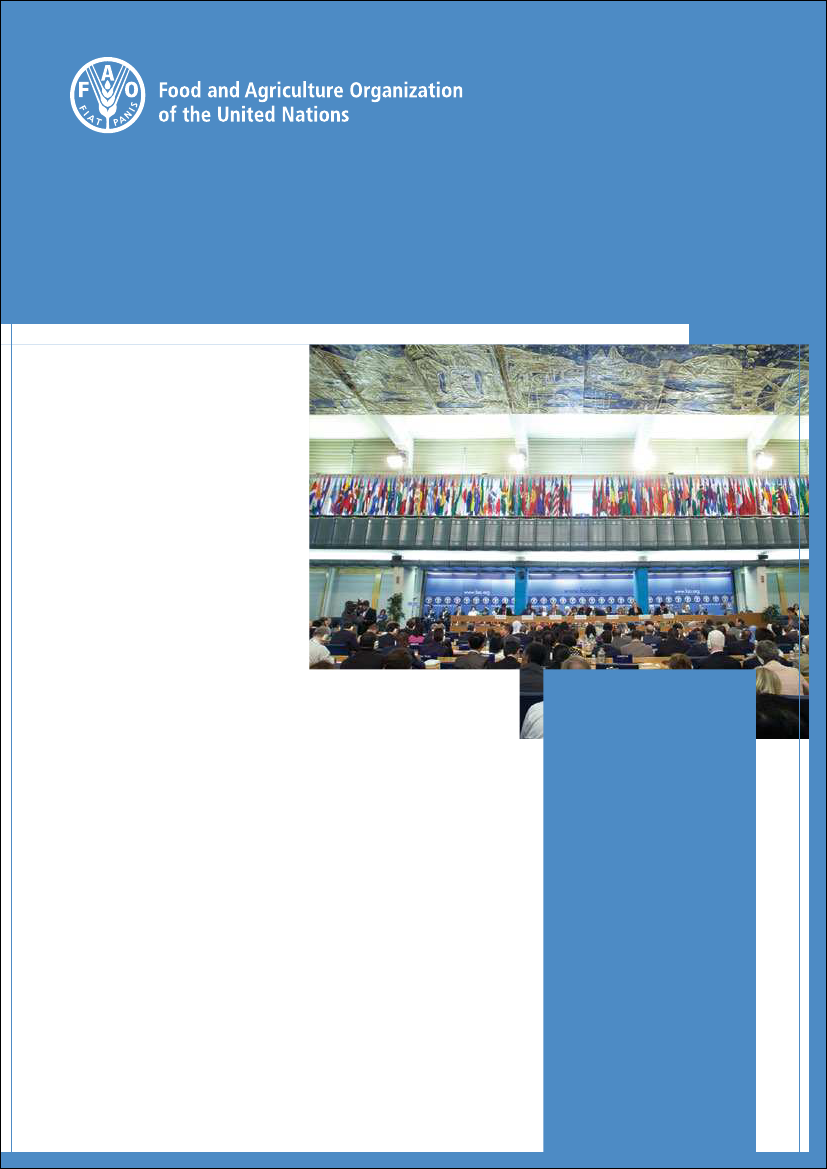
Ending hunger
and malnutrition
FAO COLLABORATION WITH PARLIAMENTARIANS ON FOOD AND NUTRITION SECURITY
INTRODUCTION
Foremost amongst the 17
Sustainable Development Goals
(SDGs) are the eradication of
poverty, achieving zero hunger,
good health and well-being. The
Rome Declaration on Nutrition
and Framework for Action also
prioritizes the eradication and
prevention of hunger and poverty
in all its forms. These global
commitments are necessary, since
despite the progress made, over
790 million people still suffer
from hunger and high levels of
malnutrition continue to persist.
Eradicating hunger and
malnutrition is therefore at the
center of FAO’s efforts. In order
to achieve this, all stakeholders
must be involved. This includes
Parliamentarians and non-State
actors such as Civil Society and the
Private Sector.
Parliamentarians are
fundamental custodians
of political commitments on
food security and nutrition;
therefore critical partners
in achieving food and
nutrition security.
FAO, through its Partnerships,
Advocacy and Capacity
Development Division
(OPC), seeks partnerships
and closer collaboration with
Parliamentarians, as we work
towards meeting our mutual
commitments on food and
nutrition security, including
the right to adequate food.
Parliamentarians’ efforts are key
to placing these issues at the
highest level of the policy and
legislative agendas.
‘‘
THE IMPORTANCE OF
PARLIAMENTARIAN
ALLIANCES IN ENDING
HUNGER AND
MALNUTRITION
Evidence has shown that
the improvement in food
and nutrition security
is principally due to
policies, programs and
frameworks that are
anchored in legislation.
We reaffirm that
everyone has a
right to adequate,
safe, sufficient, and
nutritious food and
to freedom from
hunger, and we
acknowledge the
need for specific
constitutional
and legislative
provisions to ensure
the enjoyment of
those rights.
(Extract from the Statement
by Parliamentarians
who met on the occasion
of the 2nd International
Conference on Nutrition,
Nov. 2014)
©FAO/Alessandra Benedetti